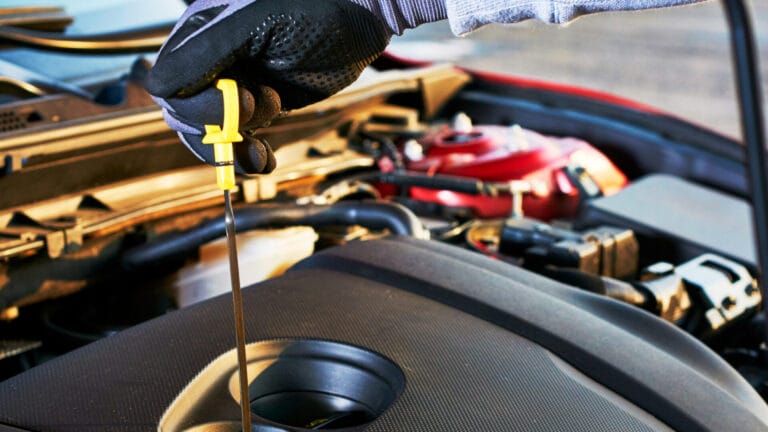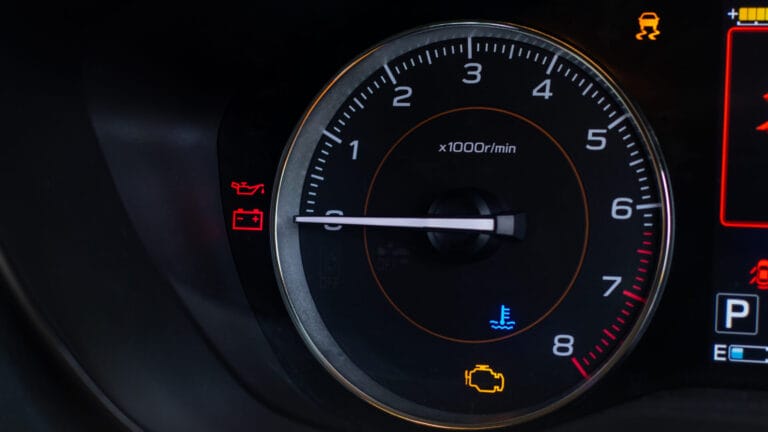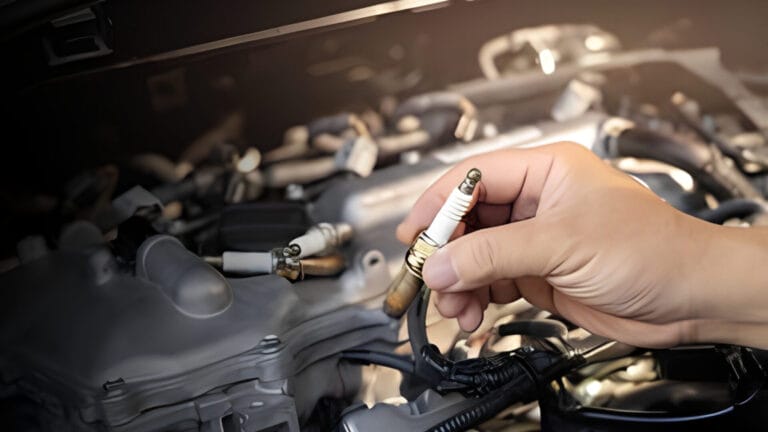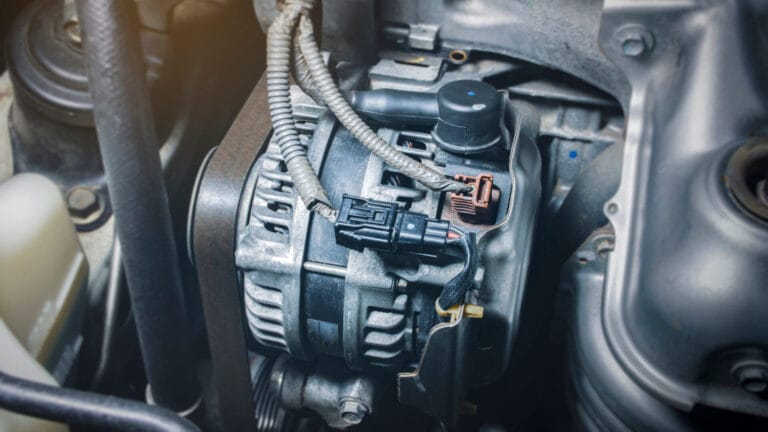Why Is My Car Key Hot When Removed From Ignition? (All You Need To Know!)
The heat from the driving action and the solenoid may cause slight heating on your car’s ignition key. However, the car key should not overheat since the vehicle has a cooling mechanism.
But why is my car key hot when removed from the ignition?
Your car key may get hot due to the following reasons.
- Faulty electrical connections
- Steering Column problems
- Sporadic engine failure and quitting
- Damaged key interlock solenoid
- Faulty ignition switch
- Faulty cooling system
- Grounding problem
This guide will explain the leading causes of car keys getting hot when removed from the ignition. In addition, we shall provide a diagnosis of each problem and how to fix the underlying issues.
Why Is My Car Key Hot When Removed From Ignition?
The car key switches on the ignition coil help start the engine by providing power to the spark plugs from the car battery. The plugs produce sparks that combust the fuel-air mixture.
But sometimes, your car key gets hotter than usual when removed from the ignition coil. In that case, there is an underlying problem with the electrical or cooling system and other components associated with the ignition.
Let’s look at these leading causes of the car key getting hot and how to diagnose each problem and offer a possible solution.

Sporadic Engine Failure And Quitting
The engine is designed to run smoothly without occasional failures or quits for efficient power supply. If there are occasional engine failures or quits when driving, it stops producing power, and the cooling system stops functioning.
These mishappenings cause heat build-up, especially when the car is running hot. With the cooling system halts, heat from the engine builds up, and some may be transferred to the car key.
Diagnosis And Solution
The engine will either halt suddenly when the vehicle is in motion or occasionally halt amidst the journey.
You must check the fuel, ignition, and electrical systems for possible malfunctions and repair them accordingly.
A Faulty Ignition Switch
The ignition switch is the point of contact between the key and the vehicle’s electrical system. It offers a point for completion of the broken circuit when turned on.
If the ignition switch is faulty and has a bad wiring connection, resulting in short circuits, the car key will get hot.
Diagnosis And Solution
For a damaged ignition switch, you will notice the vehicle has problems starting when switched on. Inspect the casing for melted or distorted parts from heat around the switch.
Once you find these symptoms, open the casing, inspect the wiring for possible short circuits, and repair or replace them accordingly. If completely damaged, replace the ignition switch with a new OEM spare.
Watch the video below for symptoms of a damaged ignition switch.
Steering Column Problems
The ignition switch and the wiring system are attached to the steering column, always under constant movement when steering the wheels. The car key may get hot due to wrong wiring connections or shorts caused by the disturbing motion of the column.
The wires may also be worn out down the pedals, causing short circuits when driving. The car key heats up due to electrical shorts that generate heat.
Diagnosis And Solution
- Open the faulty steering column and check for worn-out cables and burnt or melted plastic parts from short-circuiting.
- Replace the damaged wires and tighten any loose connections.
- Fasten the wiring using clippers on the column away from rotating sections to avoid wear and tear when steering the wheels.
Damaged Key Interlock Solenoid
The key interlock solenoid heats up when the vehicle is ignited as current flows through it. This heat is minimal, and the key cools down as you drive. However, the key may feel hot after a short drive as it may not have cooled down.
If the key feels hot even after long drives, the key interlock solenoid might be faulty, causing the key to keep heating up.
Diagnosis And Solution
To diagnose a faulty interlock solenoid, use a digital multimeter and connect the terminals to the solenoid ends. If the voltage surpasses the battery output, it is faulty.
- The solenoid requires replacement with its original OEM spare, guided by the manufacturer’s manual.
- Check the wiring connections from the battery to the starter and repair any broken connections.
Faulty Electrical Connections
If the electrical system is faulty or has loose connections, they may come into contact and short circuit. The impact generates heat that heats the car key. The faulty connection may be at the battery terminals, the wiring system, or the ignition switch and the solenoid.
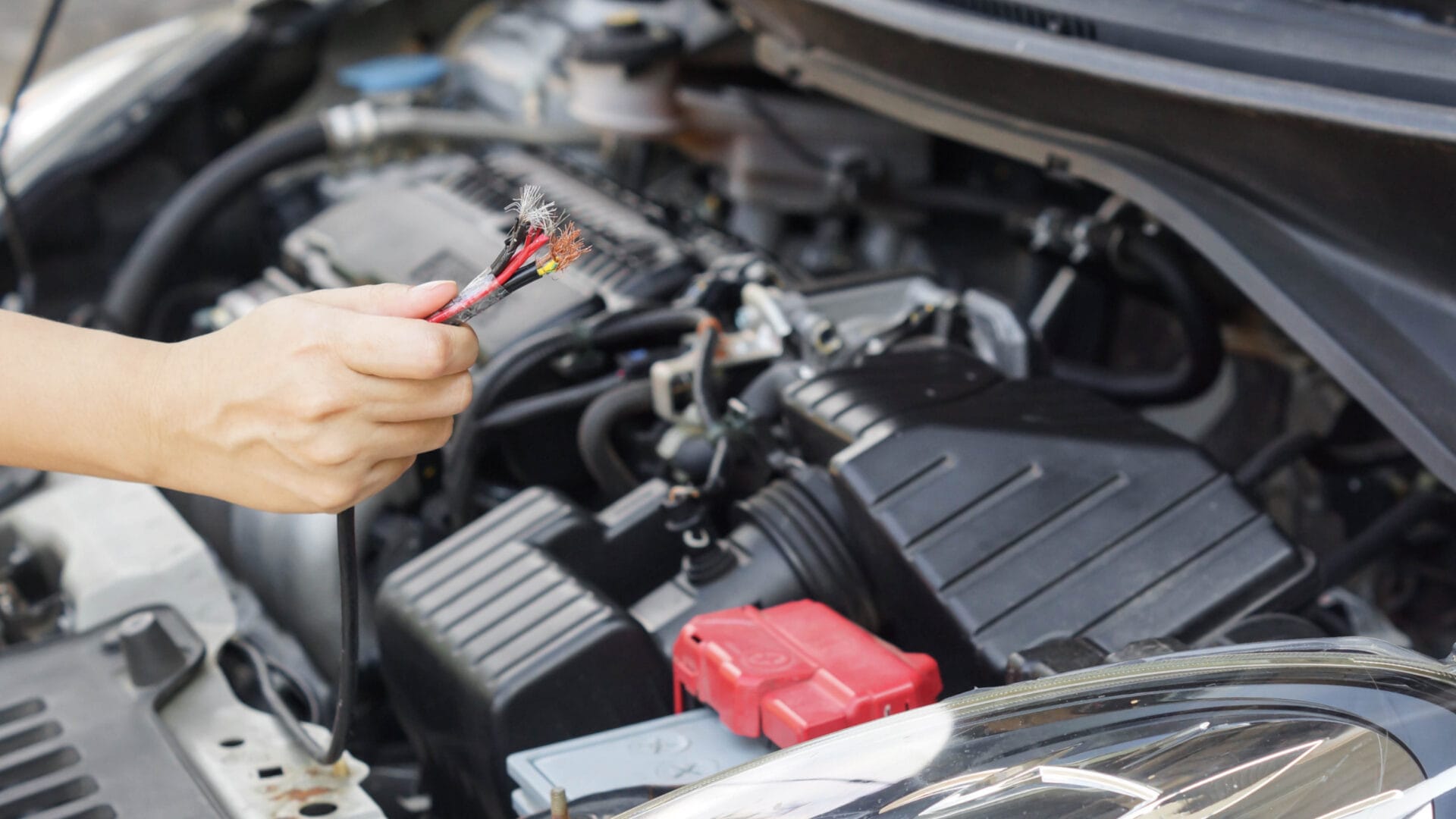
Diagnosis And Solution
To diagnose a faulty electrical connection, you can visually inspect the cable for any naked wires, loose joints, and wrongly connected wires. You may also connect a multimeter; if it reads a negative value, there is a poor connection along the system.
- Tighten the loose connections and cover the naked wires with seal tape.
- Check for wrong connections and align them appropriately.
Faulty Cooling System
Vehicles generate heat when the engine is running, and some heat generated may find its way to the car key through conduction. However, the cooling system should cool the vehicle to prevent the car key from heating up.
A faulty cooling system may be due to leakages along the system, low levels of coolant, and damaged cooling fans.
Diagnosis And Solution
Check the engine light and temperature gauge for a faulty cooling system. The cooling system is the underlying problem if the warning lights are illuminated.
- Check for coolant leaks on the ground and repair or replace the leaking parts.
- Check the coolant levels and top up with the recommended coolant from the manual guide if below the standard levels.
Grounding Problems
The vehicle frame is grounded to ensure the excess electrical charges are eliminated from the system efficiently. A faulty grounding system causes the excess charges to accumulate and heat the car key.
Diagnosis And Solution
You will observe multiple electrical issues when there is a problem with the grounding, such as flickering lights, dimming headlights, and burning smells.
You may require assistance from a professional mechanic to trace and check the ground system is in place and functioning correctly.
Also, inspect the wiring connections and measure the voltage dropping through the various parts along the ground system for abnormalities.
Can After-Market Modifications Cause The Car Key To Heat Up?
Yes, after-market modifications to the vehicle’s electrical system can cause the car key to get hot. Some of these modifications include sound systems and lighting appliances added to the vehicle’s original design.
These additional modifications may demand a high power supply that the vehicle cannot sustain. These power demands will outweigh the car battery capacity, causing the system to heat up.
The wiring connections were also designed to host a limited number of appliances. Additional appliances may cause the wire to melt due to the power upsurge.
Consider the following before making after-market modifications to your car to prevent the key from getting hot.
- Reinforce the car battery with an extra battery or replace it with a higher voltage one to sustain the power demands.
- Replace the main power supply lines with high-voltage cables to prevent them from melting.
- Install fuses along the additional appliances to avoid damage to the system during short circuits and electrical failures.
- Have a professional electrician install the additional appliances to avoid loose or wrong connections that can cause the system to heat up.
FAQs
Read the following questions for an enhanced understanding of the problem of your car key getting hot and how to rectify it.
Can I Solve The Problem Of Hot Car Key Myself?
Yes. You can fix the underlying problem causing your car key to be hot. All you need is to identify the issue and have the right tools to fix the problem. However, if you can’t identify the causative problem, don’t cause more problems. Consult your mechanic for a thorough check and fix.
What Is The Cost Of Fixing My Hot Car Key Issue?
Fixing a hot car key problem entails first diagnosing the underlying problem causing the car key to get hot. For a loose wiring connection causing short circuits, you may need a minor budget of about $5 to fix the connection.
Complex issues such as the whole electric system or a faulty ignition and interlock solenoid will cost between $5 and $20.
Can Insulating The Car Key Prevent The Car Key From Getting Hot?
Insulating the car key will not stop it from getting hot when removed from the ignition. The insulator will also get heated, and if it is a bad conductor of electricity, it will hinder ignition as the current will not flow through it.
Conclusion
A hot car key indicates heat build-up in the vehicle, either along the ignition and electrical system or a faulty cooling and grounding system. These issues cause heat to build up in the system; some are transferred to the car key.
You need to check in with a professional mechanic for a proper diagnosis and solution to the underlying problem causing the car key to heat up. Ensure frequent service and maintenance for your car to rectify these problems before they escalate.

